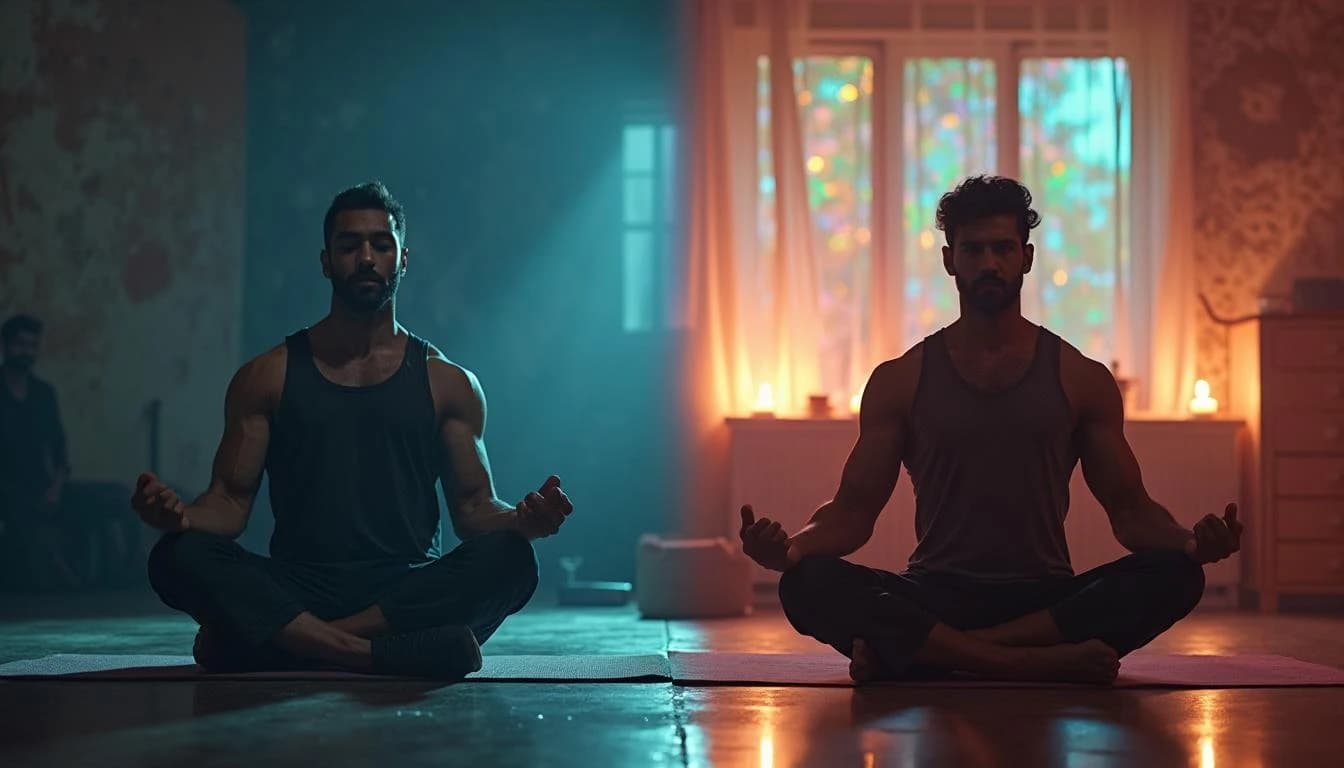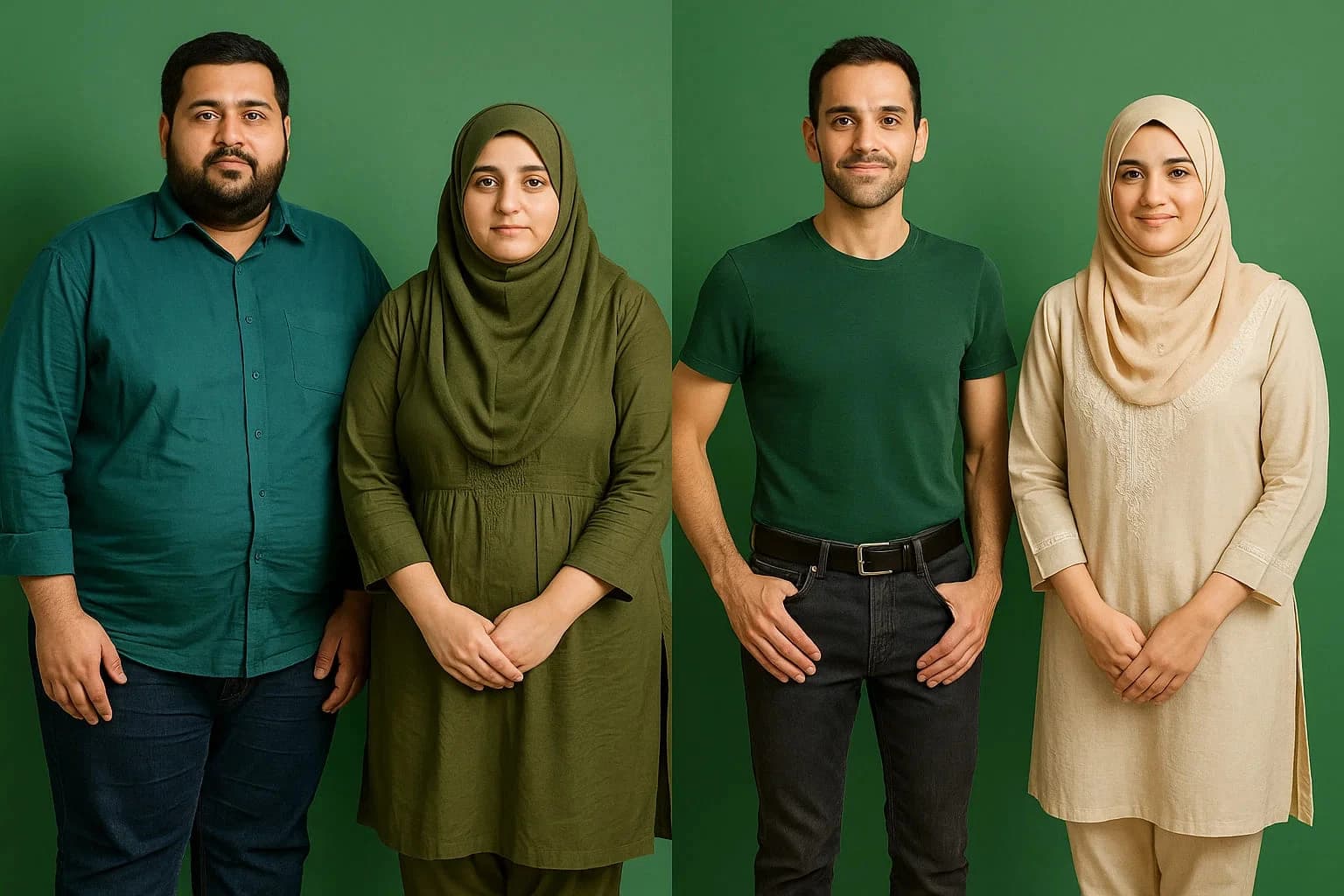© 2025 Roz UpdatesbyTETRA SEVEN

* All product/brand names, logos, and trademarks are property of their respective owners.
Over the past decade, Pakistan has experienced a profound transformation in its approach to health and fitness. Once dominated by traditional bodybuilding and weightlifting, the country’s wellness landscape is now shifting towards a more balanced, holistic model—one that embraces both physical and mental well-being. This evolution marks a significant cultural milestone, reflecting not only changes in societal attitudes but also the growing global influence on local lifestyles.
In cities like Karachi, Lahore, and Islamabad, gyms are no longer just iron-clad halls for bulking up—they have become wellness hubs offering yoga, Zumba, CrossFit, and even mindfulness coaching. Social media has played a pivotal role, with Pakistani fitness influencers championing clean eating, balanced routines, and mental health awareness. Meanwhile, fitness expos and events like Mr. Pakistan continue to draw attention, showing that strength and physique still hold cultural significance, even as definitions of health broaden.
What’s especially noteworthy is the increasing public embrace of mindfulness—a concept once confined to spiritual and religious practices. With the rise of mental health awareness, mindfulness is being adopted by young professionals, students, and fitness enthusiasts alike. From guided meditations to breathing exercises, Pakistanis are recognizing the link between mental clarity and physical performance.
This blog explores the roots and future of this shift—Pakistan’s fitness revolution—from the classic world of bodybuilding to the inclusive realm of mindfulness and holistic health. We’ll examine the driving forces behind this change, spotlight inspiring trends and technologies, and uncover the challenges and opportunities that lie ahead. Whether you're a fitness veteran, a wellness novice, or simply curious about this transformation, join us as we delve into the movement reshaping how Pakistan defines fitness in 2025 and beyond.
Bodybuilding in Pakistan dates back to the post-independence era when physical strength and resilience were seen as symbols of national pride. Early fitness icons like Abdul Malik and Younus Changezi paved the way for Pakistan’s entry into the world of professional bodybuilding. Though limited by infrastructure and global exposure, these athletes inspired a generation of young Pakistanis to pursue strength training as a disciplined lifestyle. Through local gyms, community competitions, and dedication, the culture of muscle-building steadily grew.
The annual “Mr. Pakistan” contests have long been a cornerstone of the country’s bodybuilding culture. These events offer a platform for athletes to showcase their physiques, discipline, and dedication to the sport. Televised segments, newspaper coverage, and now social media highlights have increased visibility and prestige for these competitions. Notably, international titles won by Pakistani bodybuilders—such as in Musclemania and Asian Bodybuilding Championships—have fueled national pride and inspired many youths to enter the fitness world.
Urban centers like Lahore, Karachi, and Islamabad saw a gym boom in the early 2000s, often modeled after Western facilities. These gyms were not just about weights—they became lifestyle hubs with personal trainers, protein bars, and fitness consultations. The import and local production of supplements such as whey protein, creatine, and pre-workouts significantly influenced how the average Pakistani viewed fitness nutrition. Despite regulation concerns, supplement culture played a major role in bodybuilding’s growth by making advanced nutrition more accessible.
Pakistan’s bodybuilding scene, rooted in grit and passion, laid the foundation for today’s broader fitness revolution. As the country now shifts toward mental wellness and holistic health, the legacy of its muscle-focused past continues to influence fitness norms and ambitions.
As awareness around mental health and stress management grows in Pakistan, more people are turning to practices like yoga and meditation. Once viewed through a strictly spiritual or Eastern philosophical lens, these practices have now entered mainstream fitness regimens. Yoga studios are popping up in affluent areas of Karachi and Lahore, offering everything from power yoga to restorative sessions. Meanwhile, guided mindfulness meditation is being adopted in wellness retreats, corporate settings, and even university stress-relief programs. This shift reflects a broader realization: true fitness includes emotional resilience and mental clarity, not just muscle mass.
Pakistan’s fitness scene has become increasingly influenced by global trends, particularly through social media platforms like Instagram and YouTube. Influencers such as Pakistani fitness coach Nusrat Hidayatullah and brands like TriFit promote functional training, mobility, clean eating, and mental wellness. Concepts like intermittent fasting, intuitive eating, and even breathwork are gaining traction among urban millennials. The exposure to Western and Eastern fitness philosophies has encouraged a more integrative approach to health—one that values mind-body synergy over brute force or extreme diets.
Grassroots wellness initiatives are helping normalize this holistic perspective across demographics. Organizations are hosting outdoor yoga sessions, fitness walks, and even meditation circles in public parks. Universities and NGOs are launching wellness campaigns focused on stress, nutrition, and self-care. These programs often use a low-cost, inclusive approach to reach a broader audience, particularly women and youth. As these communities grow, so does the cultural acceptance of mindfulness and holistic wellness as vital components of a healthy life in Pakistan.
This ongoing shift from appearance-based fitness to balanced well-being marks a significant cultural evolution. It signals that Pakistanis are increasingly valuing not just how they look—but how they feel and function every day.
Technology has become a powerful driver in Pakistan’s fitness evolution. The widespread use of smartphones and increased internet penetration have given rise to fitness apps that track workouts, nutrition, and even sleep quality. Apps like MyFitnessPal, Fitbit, and locally developed platforms like AimFit allow users to monitor their progress in real time. Wearables—smartwatches, fitness bands, and heart rate monitors—are now common accessories among gym-goers, signaling a shift toward data-driven fitness. Smart gyms, especially in urban hubs, feature automated equipment, digital membership systems, and even AI-guided personal training.
The pandemic accelerated the adoption of digital fitness services in Pakistan. Now, online coaching is not only normalized but preferred by many for its flexibility and affordability. Pakistani trainers offer personalized diet plans, workout routines, and motivation via WhatsApp, Zoom, and Instagram Live. Platforms like VFitness, TotalBodyTransform, and TriFit Online offer comprehensive programs without the need for physical gym attendance. Virtual yoga, HIIT, and mindfulness classes are attracting diverse participants—from housewives in Faisalabad to working professionals in Islamabad.
Fitness influencers are among the most impactful agents of change in Pakistan’s health landscape. By sharing workouts, meal plans, and motivational content, they democratize access to wellness knowledge.
In essence, technology is not just a tool but a catalyst for inclusivity and innovation in Pakistan’s fitness journey. It empowers individuals to take control of their health—anytime, anywhere.
A significant challenge in Pakistan’s fitness revolution is the stark urban-rural divide. While cities like Lahore and Islamabad are equipped with high-end gyms, wellness centers, and smart fitness services, rural areas often lack even basic fitness infrastructure. Cultural norms, limited awareness, and affordability issues further restrict access to wellness resources in smaller towns and villages. The need for inclusive policies and mobile fitness initiatives is urgent. Low-cost community gyms, government-backed fitness drives, and NGO-led health programs could help bridge this gap and ensure that wellness isn't a luxury limited to urban elites.
Despite growing interest, societal perceptions still influence who feels "allowed" to pursue fitness. Women, especially in conservative areas, face stigma when joining gyms or participating in mixed-gender activities. Mental health and mindfulness practices also struggle against stigma, often dismissed as non-essential or misunderstood as spiritual rather than scientific. However, increasing media coverage and education campaigns are slowly changing this narrative. Female-only gyms, home-based fitness options, and culturally sensitive wellness programming are key to ensuring broader participation.
Pakistan’s fitness industry holds massive economic potential. With a growing middle class and increased health consciousness post-COVID, there is rising demand for fitness services, supplements, equipment, and wellness tech. However, the sector remains largely unregulated and fragmented. There's a clear opportunity for the government to recognize fitness as a critical part of public health and economic development. Incentives for gym startups, regulation of supplements, tax benefits for wellness programs, and integration of fitness in educational curricula could significantly enhance both health outcomes and economic gains.
Pakistan’s fitness revolution stands at a crossroads. With the right investments and inclusive mindset, it can evolve into a nationwide movement—one that benefits every citizen, regardless of geography or gender.
Pakistan’s fitness revolution is more than just a shift in exercise habits—it’s a societal transformation redefining what it means to be healthy. From the iron-clad legacy of bodybuilding to the emerging embrace of mindfulness and holistic wellness, the country is witnessing a dynamic blend of tradition and modernity. Gyms have evolved, yoga mats are now as common as barbells, and conversations around mental health are finally entering the mainstream.
This revolution is not just for elite athletes or urban dwellers; it’s for everyone. It invites students, homemakers, professionals, and elders to rethink fitness beyond six-packs and treadmills. Whether through mindfulness meditation, functional training, or simply walking daily, each effort contributes to a healthier, more balanced Pakistan.
Now is the time to act. Embrace a holistic lifestyle. Support local wellness initiatives. Share your fitness journey. Because the future of health in Pakistan isn’t just physical—it’s personal, mindful, and revolutionary.

9 October 2025

23 September 2025
No comments yet. Be the first to comment!